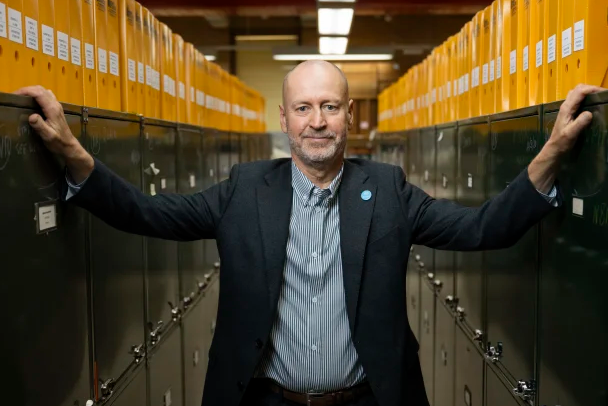
CSIRO Chief Executive Doug Hilton has rejected an appeal from the Staff Association to change course and reverse planned job cuts.
Staff Association Secretary Susan Tonks wrote to Dr Hilton last month expressing serious concern on behalf of the CSIRO workforce and calling for a change of approach.
“Since your announcement in February of a restructure of enterprise services – where several hundred support roles may ultimately be at risk – there have been announcements of job cuts across multiple business units including Health and Biosecurity, Agriculture and Food and Manufacturing,” Ms Tonks said.
“Despite your public statements to the contrary, it now appears that Data61 will move closer to implementing significant job cuts, as part of a strategy to reduce operating costs by 20 per cent.”
“It’s not too late to change your approach. We call on you to listen to staff, reverse the job cuts, protect CSIRO research and rebuild trust,” Ms Tonks said.
While acknowledging the gravity of the situation, Dr Hilton’s response signalled no change in direction.
“Along with the rest of CSIRO’s Leadership team, I am very mindful of the impact of workforce changes on staff. We are committed to supporting our people throughout these difficult changes and will always look to minimise staff impacts wherever possible.”
Dr Hilton referenced the $450 million Covid-era funding lifeline – which was not maintained by the Federal Government and expired at the end of June – without stating that mismanagement of the extra cash was to blame.
However, the growth in Enterprise Services costs was clearly identified.
“Over the past 18 months the Executive Team has undertaken an analysis and identified that Enterprise Services (ES) functions have grown disproportionately to science areas.”
“The ES Reform process is addressing this, ensuring our ES teams can best deliver the services that underpin CSIRO’s science delivery simply, efficiently and sustainably.”
While the enterprise services restructure is scheduled to continue through until next June, there are fears the ultimate losses involved could exceed four hundred jobs.
So, what about research roles?
Cuts on the table include Health and Biosecurity (43), Agriculture and Food (30), Manufacturing (5), Data61 (up to 120) with rumours that Environment (65) could be next.
“In relation to CSIRO’s research units, we are continually undertaking strategic workforce planning to ensure we have the right scale and research capability in place to deliver against national priorities in a financially sustainable way,” Dr Hilton said.
Ms Tonks had highlighted the poor culture survey results, stating that the ratings “reveal a steep fall in staff confidence when it comes to CSIRO’s vision, mission and strategic direction.”
“CSIRO staff deserve better than a continuation of the constant job insecurity that has plagued the organisation over the past decade.”
Dr Hilton responded by claiming the Executive team were “now working on better understanding the survey insights to further to develop enterprise-wide actions to leverage our key strengths and address opportunities for improvement.”
“For any proposed changes that impact CSIRO staff, we are committed to consulting staff and considering their feedback before making a final decision,” Dr Hilton said.
“In this regard, I would like to reiterate that CSIRO notifies our Minister’s office of this process and the resulting decisions but neither the Minister nor the Minister’s office plays a role in the decision-making process.”
“CSIRO’s focus is firmly on ensuring staff are informed, consulted, and supported throughout any changes,” Dr Hilton said.
